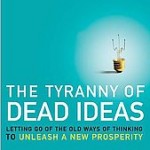In Josh Catone’s recent article in Mashable “Why NPR is the Future of Mainstrem Media“, he describes how National Public Radio (NPR) “is starting to look like they have the future of news all figured out. Or at least, they appear to doing a lot better at it than the rest of the traditional media.”
Catone reports that NPR now has 23.6 million people ” tuning into its broadcasts each week. In fact, NPR’s ratings have increased steadily since 2000, and they’ve managed to hold on to much of their 2008 election coverage listenership bump (with over 26 million people tuning in each week so far in 2009), unlike many of their mainstream media counterparts.”
Why has NPR been so effective at building its audience while the majority of media outlets are losing their audience? According to Catone the reason for its success lies in its three prong approach: a focus on local; a focus on social media; and a focus on obiquitous access.
By focusing on what is happening locally, NPR fulfills a need that has been abandoned by most media. Catone reports, “Focusing on local information is a very smart approach for two reasons. One, because as Schiller says, it fills a gap in coverage, and two, because many people feel that delivering and aggregating hyperlocal content will be an important part of the future of media. In 2007, Alex Iskold, the CEO of semantic web application company AdaptiveBlue, predicted the rise of hyperlocal information, indicating that extremely targeted local advertising could be the path forward for the ad industry.”
NPR has also built its audience by building a strong social media presence. NPR’s Twitter account has more than 780,00 followers and NPR has more than 400,000 FaceBook fans. In addition, NPR has more than 650 podcasts, nearly 20 blogs, as well as their own social community.
According to Catone:
Perhaps the most important aspect of NPR’s approach to new media, is that they have an organizational level commitment to allowing listeners and readers to access their content on their own terms. Schiller, who prior to joining NPR at the start of this year was the SVP-GM of The New York Times web site, told mediabisto.com that NPR aims to bring people access to content “online, mobile, whatever people want, podcasts — you name it — so that you have that same sense of the NPR experience wherever you are. As far as NPR.org — sure, I want the traffic to increase, but to me the ultimate goal is not just bringing people to this walled garden that is NPR.org.”
NPR’s ability to build its audience is certainly impressive especially at a time when so many media outlets are going under. What lessons can your organization learn from NPR’s success?

